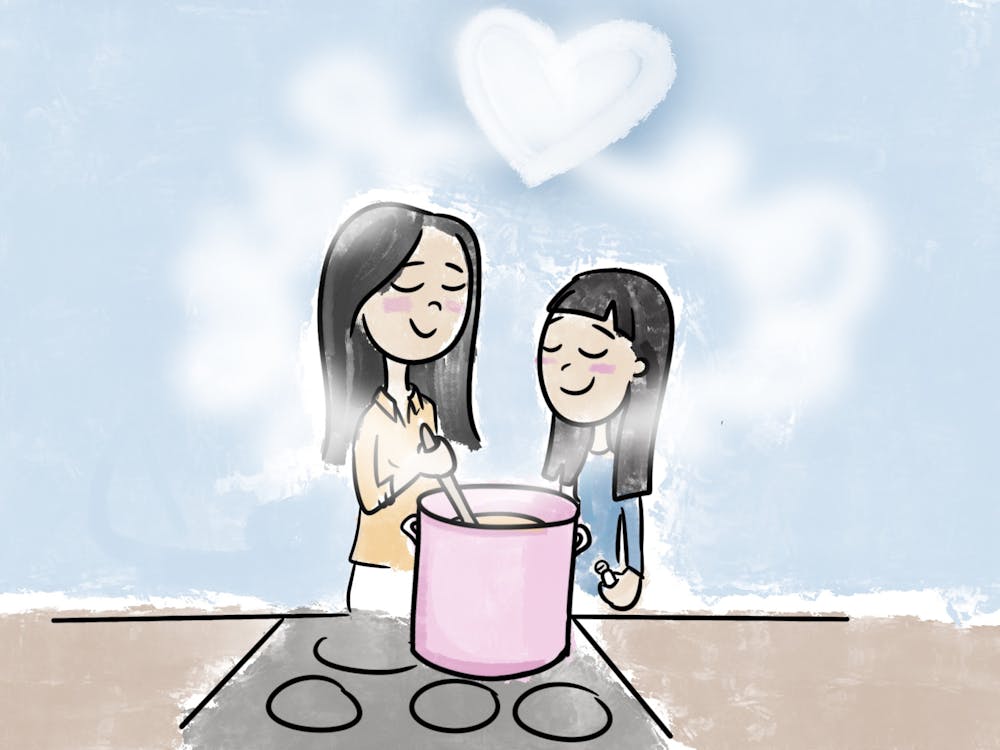Around me, a hundred or so Italians milled about. The small piazza on the outskirts of this small Tuscan town was half-full. Medieval facades peered down stoically. An Italian four-piece band performed on a makeshift stage, cycling through gentle Italian pop music. The scene was lively but provincial, the expanse of gray hills in the background a constant reminder that the festivities were blissfully removed from the rest of the world. Then the music shifted — a few popping guitar chords cut through the parochial ambience. I thought I recognized the tune, and then the singer chimed in:
“It’s fun to stay at the YMCA!”
A few numbers later, they moved on to the even more alarming “Barbie Girl.” I wasn’t surprised to find the elements of American pop culture stretching all the way to my provincial Italian town. In fact, I was frankly surprised it took them that long to get to the American numbers.
The United States is the globe’s pop culture leader. We have the greatest music in the world — diverse, energetic, soulful, constantly evolving. We combine that with a robust, capitalist infrastructure to disseminate our culture and products most effectively. Artists like Taylor Swift, Pharrell Williams and the Chainsmokers have topped charts in countries across the world for years.
Despite all this, I have been consistently surprised this semester by the nature of America's pop culture influence on Italy. I fully expected to arrive in Italy and hear the same music I heard when I left home. For the most part, though, that hasn’t been the case. The American music I've heard Italians listening to is bizarre. Our top pop hits are just as ubiquitous over here — I traveled halfway across the world and can't escape "Despacito" — but other than that, the American music that Italians listen to is totally disconnected from the music we listen to in the States.
Why are YMCA and Barbie Girl the songs of choice at a Tuscan block party? Of all the American musical tradition has to offer, why are those the ones that stick? I asked one aspiring Italian DJ which American artists he wants to see most in concert, and he said Imagine Dragons and Twenty One Pilots — an answer that would yield a dramatic eye roll from almost anyone who considers themselves knowledgeable about American pop culture.
The Italians that I've spoken to have been vaguely clueless about the most popular American music. Asking about Kanye West here yields looks of vague derision — and explaining to people that he isn't just a Kardashian satellite, but in fact a pioneer of American hip-hop in his own right — is often a shocking revelation.
The most popular hits in America are also unknown in Italy. I have yet to meet an Italian who had heard "Black Beatles" before I showed it to them. That song was played at every social gathering on every college campus for six months straight, but apparently that wasn't enough to propel it to prominence abroad — despite America's supposed pop culture dictatorship.
I asked one Italian student whether or not Italians like trap music, and he responded enthusiastically, "We love trap music! I went to the United States and heard Trap Queen by Fetty Wap! Great song!"
It's a well meaning mistake, but it shows that Italians aren't as knowledgeable about the nuances of our culture as I expected. Calling "Trap Queen" trap music is like saying Tom Brady is the lead singer of the band American Football.
What explains this disconnection? One reason Italians are loath to embrace American music is that, on some level, many are simply exhausted with America and Americans in general. Tourism can be a major nuisance in Italy, and some Italians have come to resent the insidious intrusion of America into every facet of their lives. American tourists fill their restaurants. American shows fill their TVs — the most commonly referenced shows in my conversations with Italians have been "Game of Thrones" and "How I Met Your Mother." American stores fill their streets — my street in Siena has a Foot Locker, and there's a McDonald's just down the road. Some pushback to this over-saturation is inevitable.
Another explanation for the strange way Italians synthesize American culture is that the themes of American music are not resonant in Italy. American music is built to confront the unique challenges of American culture. The most salient 21st-century example is commentary on race — seen in songs by Kendrick Lamar and Beyoncé, or even "Black Beatles." Some of the most popular music among young Americans is made by African-American musicians, and the Italians I have met do not listen to this music nearly as much as we do in the States.
Based on the conversations I've had with young Italian people, this sort of makes sense — and it's not because Italians are all racist. Instead, Italians perceive different cultural challenges than Americans do. I was surprised to find that many of them have never heard the N-word and are unfamiliar with its significance. If they had heard it in songs, many didn't realize what I was talking about until I literally spelled it out for them.
I explained to one Italian college student that the N-word is the worst expletive an American can use, and he cheerfully responded, "Oh yeah, we don't have a race problem, so that's different here." Actually, Italy most certainly does have a race problem, but that's a different story.
It's no surprise that someone, who understands race on those terms, would be perplexed by "HUMBLE." Conversely, the American music that is popular here — Taylor Swift, for example — is generally free of racial discussion or significance. Much of the music we listen to is a response — explicit or otherwise — to what's happening in our country, and so it's less relevant and therefore less resonant to non-Americans. Justin Bieber is popular in Italy, while Chance the Rapper is not, and that is in part because of subject and context.
Most important, however, is that Italian society is not built for pop culture. This is a place where tradition reigns supreme. The attitude towards culture matches the physical surroundings. Italians, raised on medieval streets, moving throughout their day beneath glorious cathedrals, have a reverence for tradition that Americans simply don’t — especially in central and southern Italy.
American pop culture’s dynamism is a result of American society’s dynamism. Our art moves at lightning speed — just like everything else on our side of the pond — and our comparatively loose relationship with tradition is what makes America so exciting.
In Italy, nothing moves at lightning speed. People like their routines. French scholar Jean Baudrillard put it eloquently — “Everywhere in Europe, you get a sense of modernity as something tacked on, heterogeneous, anachronistic.” In America, modernity cannot be “tacked on,” because modernity is all we have.
University of Siena student Michele Santoro was less verbose but no less correct when he said, “Pop culture is a way of life. In Italy we like our traditions. Pop culture is very, very strange [to us].”
Given these cultural predispositions, it makes sense that Italian pop culture lurches along behind the American lead. Pop culture as we conceive it requires relentless novelty — Italians aren’t so enamored with novelty. This deep-rooted sense of tradition is the underlying factor that results in Italy's inconsistent absorption of American music.
After a night of drinking in Sicily, I walked back towards my hotel with a group of Italian students, and, as happens in those situations, somehow everyone began to sing — first was Queen’s “Bohemian Rhapsody.” Every Italian student knew every word, even the kids who barely spoke English. Wandering through an empty Sicilian metropolis — and hearing a tune I most closely associate with Wayne's World was surreal but not that surprising — "Bohemian Rhapsody" is gratingly ubiquitous in the United States as well. Then they moved on to something completely different — the Red Hot Chili Peppers' "Californication." Again, they all knew every word.
It's shocking at first to think that these kids are intimately acquainted with the Red Hot Chili Peppers' 17th best song and yet sneer when they hear of Kanye. However, on closer examination, Italy's strange relationship with American pop isn't without explanation. Italians are tired of Americans. They are removed from the context of our music and culture. And on a broad scale, Italian culture is fundamentally resistant to the the constant influx of newness that defines American music culture. The result is that American culture sometimes takes unexpected forms here in Italy.
This is not to say that America is not alluring to Italians. Asking young Italians what they think of New York City always yields a moan of longing. They all say they listen to trap music, even if many have no idea what that is. Passé as it may be in America, "Californication" is nevertheless a song about our culture and our style. Italy's culture is simply not set up for pop culture in the way ours is. Some idiosyncrasies are inevitable — There are many reason Italians listen to Imagine Dragons and not Rae Sremmurd.
Why do Americans listen to Imagine Dragons? That, I'm afraid, I'll never know.





